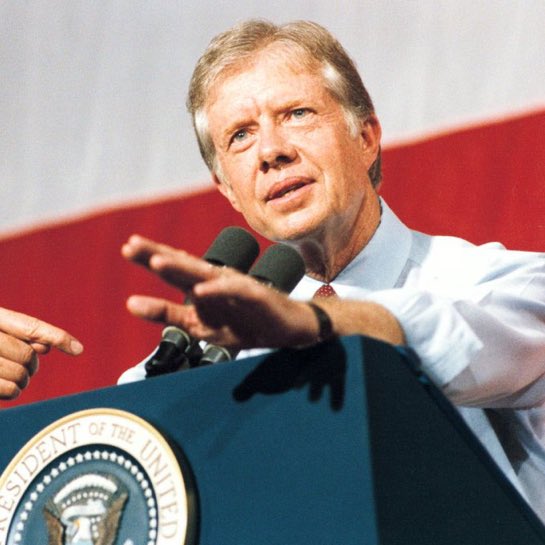Jimmy Carter, a Georgia peanut farmer who rose to become the 39th President of the United States and later won a Nobel Peace Prize, passed away at the age of 100. The Carter Center announced his death, stating that he died peacefully at his home in Plains, Georgia, surrounded by family.
A Faithful Leader and Outsider Politician
Carter, a devout Christian who taught Sunday school for decades, brought a faith-driven perspective to politics. His rise from Georgia governor to the presidency in 1977 was seen as a response to the public’s desire for a fresh, reform-minded leader after the Watergate scandal.
During his single term (1977–1981), Carter faced tough challenges, including high inflation, energy crises, and the Iranian Revolution. One of the most defining moments of his presidency was the 444-day hostage crisis, during which 52 American diplomats were held captive in Iran. They were released only minutes after Ronald Reagan succeeded him as president.
Key Achievements in Office
Although his presidency was often criticized, Carter’s accomplishments gained recognition over time. He brokered the Camp David Accords, which brought peace between Egypt and Israel, signed the Panama Canal Treaty, and advanced arms control through the SALT II Treaty with the Soviet Union. Carter also played a key role in formalizing diplomatic relations between the United States and China.
Domestically, he created the Department of Energy and the Department of Education. Carter pushed for fiscal responsibility while controversially increasing Pentagon budgets, a stance later adopted by Democrats like Bill Clinton and Barack Obama.
“Human Rights is the Soul of Our Foreign Policy”
Carter placed human rights at the heart of U.S. foreign policy, famously stating in 1978, “Human rights is the soul of our foreign policy because human rights is the very soul of our sense of nationhood.”
Life After the Presidency
After leaving the White House, Carter dedicated his life to humanitarian work through the Carter Center. He mediated ceasefires, monitored elections, and fought for democracy and human rights worldwide.
In 2002, he was awarded the Nobel Peace Prize for decades of effort to resolve conflicts and promote social and economic development. In his acceptance speech, Carter urged leaders to close “the growing chasm between the richest and poorest people on Earth.”
From a Small Town to Global Impact
Born on October 1, 1924, in Plains, Georgia, Carter grew up during the Great Depression, working on his family’s peanut farm. His upbringing, alongside Black sharecroppers, instilled values of hard work and empathy that defined his career.
Even as he gained global recognition, Carter remained deeply connected to Plains, his lifelong home and the heart of his work. Known as “The Man from Plains,” he often returned to the small town, which remained a cornerstone of his identity.
Carter’s legacy as a humble leader, a champion of human rights, and a tireless advocate for peace and democracy will continue to inspire generations.
China Mourns Jimmy Carter’s Role in Ties
China expressed deep sadness over the death of former U.S. President Jimmy Carter, who passed away at 100. Carter played a key role in establishing diplomatic ties between China and the U.S. in 1979. His decision to recognize China’s stance on Taiwan and end official relations with Taiwan helped reshape U.S.-China relations. Chinese officials praised Carter for his significant contributions to improving ties and fostering cooperation between the two countries.
Bringing you the latest updates on finance, economies, stocks, bonds, and more. Stay informed with timely insights.






Be First to Comment